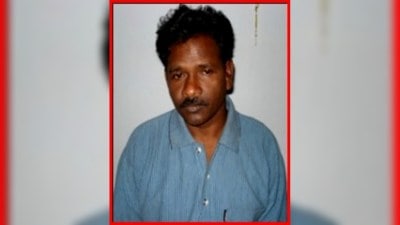Indica taxis to hit Mumbai roads soon
MUMBAI, NOV 9: Tata's swanky small car Indica will soon be donning the black and yellow colours to replace the Premier Padmini as Mumbai'...

MUMBAI, NOV 9: Tata’s swanky small car Indica will soon be donning the black and yellow colours to replace the Premier Padmini as Mumbai’s taxicab of the future.
Representatives of Telco yesterday committed to supply the taxi trade with a first batch of 200 Indicas by early next year even as other manufacturers pledged their cars to fill in the gap left by the Padmini.
At a meeting of taxi unions, car manufacturers, NGOs and banks at the Transport Commissioner’s office, representatives of Telco, Hindustan Motors and Fiat promised to meet the demand arising out of the phase-out of old taxis in the city.
“There doesn’t seem to be any problem to replace the 30,000 taxis which are over 15-years-old if the Bombay HC gives such a directive,” Transport Commissioner Vinay Mohan Lal told The Indian Express.
According to Lal, these 30,000 taxis comprised over 70 per cent of the city’s strength of 55,000 taxis and are the major polluters. Yesterday’s meeting was convened to examine whether it wasfeasible to replace these 30,000 taxis with models other than the Padmini.
Three car manufacturers offered their Euro-II compliant models for the taxi trade yesterday. Hindustan Motors, Fiat and Telco offered both diesel and petrol-CNG versions of the Ambassador, Uno and Indica respectively. If all offers are taken up by the taxi trade, it will amount to a gradual dilution of the monopoly that Premier Padmini enjoyed for close to two decades.
“If Mumbai’s public travel in status symbols like Euro-II Tata Indicas, it will be a step forward,” said Lal.
Telco’s representatives said that they were willing to offer any number of vehicles to satisfy the demand and a first batch of 200 Indicas would be made available to the taxi trade by early next year. Taximen say it is a marked change in their stance from last year. “We had approached Telco for the Indica last year since Premier had virtually stopped making the Padmini, but the reply was that they wanted to meet the requirement of the passenger carsegment first,” said Devdas Salian, Assistant General Secretary of the Bombay Taxi Association.
Taximen say that the imported components of the Fiat Uno make it prohibitively expensive to operate as a taxi. “The cost of a single headlamp of an Uno is Rs 1,700 since the parts are imported. With the Indica, the parts are at least manufactured locally,” said Jastar Singh Gill, general secretary of the association.
But the taximen want their pound of flesh, chiefly in the form of low interest rates from banks for buying the cars and concessions in sales and excise taxes.
“Hundreds of taximen have spent over Rs 1 lakh each for changing over from petrol to diesel-run vehicles. They haven’t finished paying back their loans as yet,” said Salian, adding that the government should compensate taxi drivers for scrapping their old vehicles.
Significantly, the contentious issue of taxis boycotting fitness checks at RTOs did not figure in the meeting. Over 2,000 taxis had been issued notices by the TransportCommissioner, asking them to report for fitness checks, an issue which led to the taxi strike last fortnight.



- 01
- 02
- 03
- 04
- 05




























